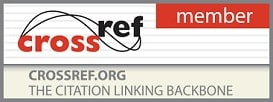
- Printed Journal
- Indexed Journal
- Refereed Journal
- Peer Reviewed Journal
Impact Factor: Impact Factor(RJIF): 5.3
International Journal of Home Science
2018, VOL. 4 ISSUE 3, PART B
Innovative educational program based on banduras social cognitive theory for food label understanding in early adolescents
Author(s): Dr. Upasna Seth
Abstract:
Adolescence offers an intervention opportunity to prevent the onset of health damaging behavior, and establish healthy eating habits. In the current scenario, when there are shifts from homemade to prepackaged foods, food labeling could serve as a population-based approach to help consumers make healthy choices. The food label is direct means of communication of product information between buyer and sellers. It enables the consumer to differentiate between foods and brands to make informed purchasing choices. Food labeling represents a valuable tool to help consumers make informed decisions about their diet, life-style and plays an important role by disseminating important nutrition information to consumers. The present study is a school based educational intervention study, designed to measure changes in nutrition related knowledge, understanding and use of nutrition facts on food label by obtaining pre and posttest intervention scores using questionnaire technique. The research work was conducted in four phases. Phase me with objective to assess eating habits, nutrition status of early adolescents and their existing nutrition knowledge, attitude, and understanding of food labels. Phase II to develop an educational program based on Banduras social cognitive theory. Phase III to impart education on food label through the developed educational program and Phase IV to assess the understanding of the adolescents regarding food label. The sample of the study was 490 early adolescent children from seven government schools of Delhi. The experimental group was of 250 and control group comprised of 240 students. The average pretest scores in experimental group for nutrition knowledge were 2.62 which significantly increased to 8.24, for attitude towards information on food label scores significantly increased from 20.41 to 29.92, scores of practice of using information on food label significantly increased from 20.63 to 28.24 and scores for understanding the nutrition facts on food label too significantly increased from 1.24 which to 3.75, whereas no significant improvement in scores were observed in control group. The results thus demonstrate that children participating in this study successfully learned how to read and compare information on food label. The research also, demonstrates that innovative teaching session, on food labels with emphasis on understanding the nutrition facts table can enable children to select foods which are healthy after carefully reading the food label.
Adolescence offers an intervention opportunity to prevent the onset of health damaging behavior, and establish healthy eating habits. In the current scenario, when there are shifts from homemade to prepackaged foods, food labeling could serve as a population-based approach to help consumers make healthy choices. The food label is direct means of communication of product information between buyer and sellers. It enables the consumer to differentiate between foods and brands to make informed purchasing choices. Food labeling represents a valuable tool to help consumers make informed decisions about their diet, life-style and plays an important role by disseminating important nutrition information to consumers. The present study is a school based educational intervention study, designed to measure changes in nutrition related knowledge, understanding and use of nutrition facts on food label by obtaining pre and posttest intervention scores using questionnaire technique. The research work was conducted in four phases. Phase me with objective to assess eating habits, nutrition status of early adolescents and their existing nutrition knowledge, attitude, and understanding of food labels. Phase II to develop an educational program based on Banduras social cognitive theory. Phase III to impart education on food label through the developed educational program and Phase IV to assess the understanding of the adolescents regarding food label. The sample of the study was 490 early adolescent children from seven government schools of Delhi. The experimental group was of 250 and control group comprised of 240 students. The average pretest scores in experimental group for nutrition knowledge were 2.62 which significantly increased to 8.24, for attitude towards information on food label scores significantly increased from 20.41 to 29.92, scores of practice of using information on food label significantly increased from 20.63 to 28.24 and scores for understanding the nutrition facts on food label too significantly increased from 1.24 which to 3.75, whereas no significant improvement in scores were observed in control group. The results thus demonstrate that children participating in this study successfully learned how to read and compare information on food label. The research also, demonstrates that innovative teaching session, on food labels with emphasis on understanding the nutrition facts table can enable children to select foods which are healthy after carefully reading the food label.
Pages: 103-107 | 500 Views 242 Downloads

How to cite this article:
Dr. Upasna Seth. Innovative educational program based on banduras social cognitive theory for food label understanding in early adolescents. Int J Home Sci 2018;4(3):103-107. DOI: 10.22271/23957476.2018.v4.i3b.1154





